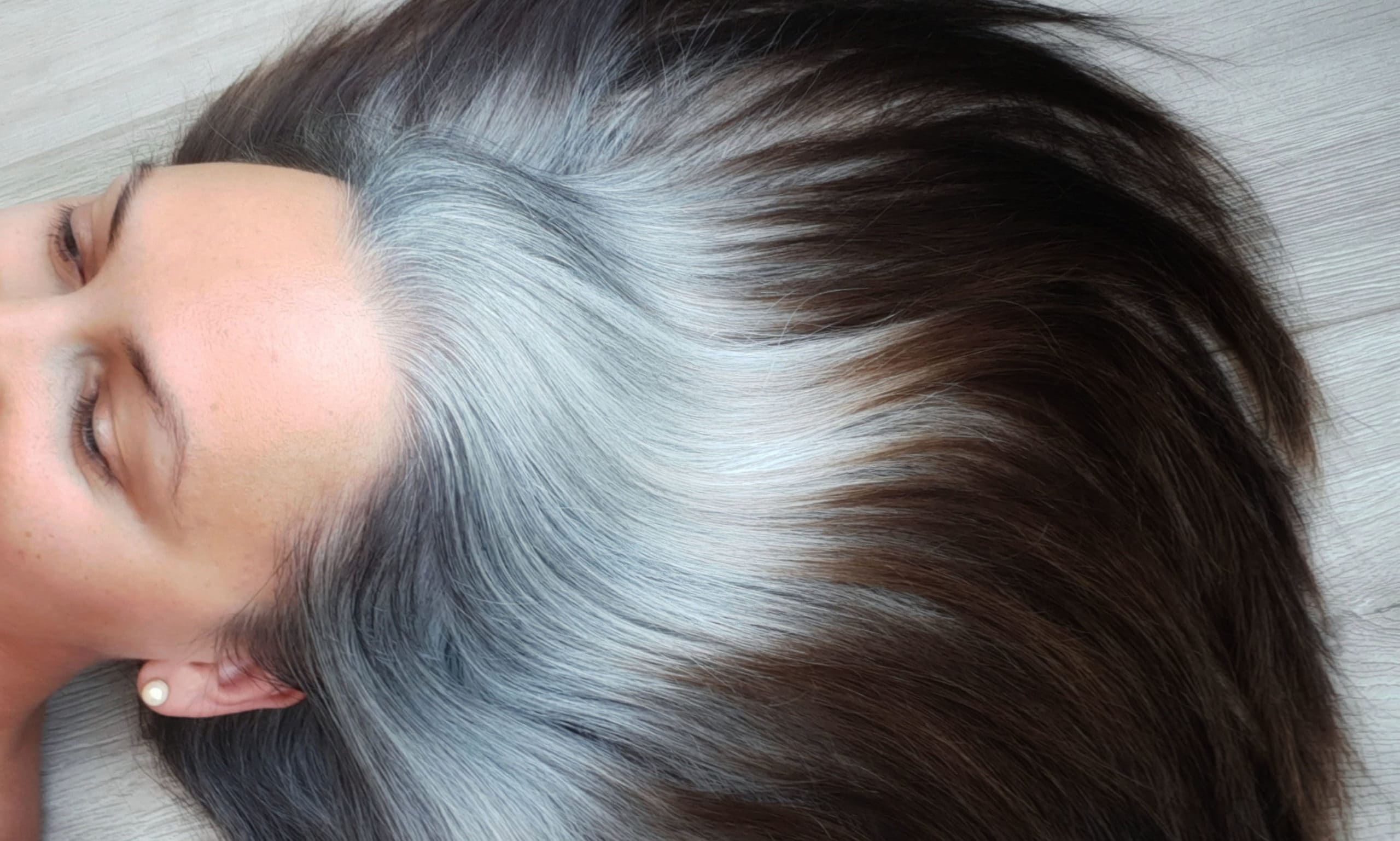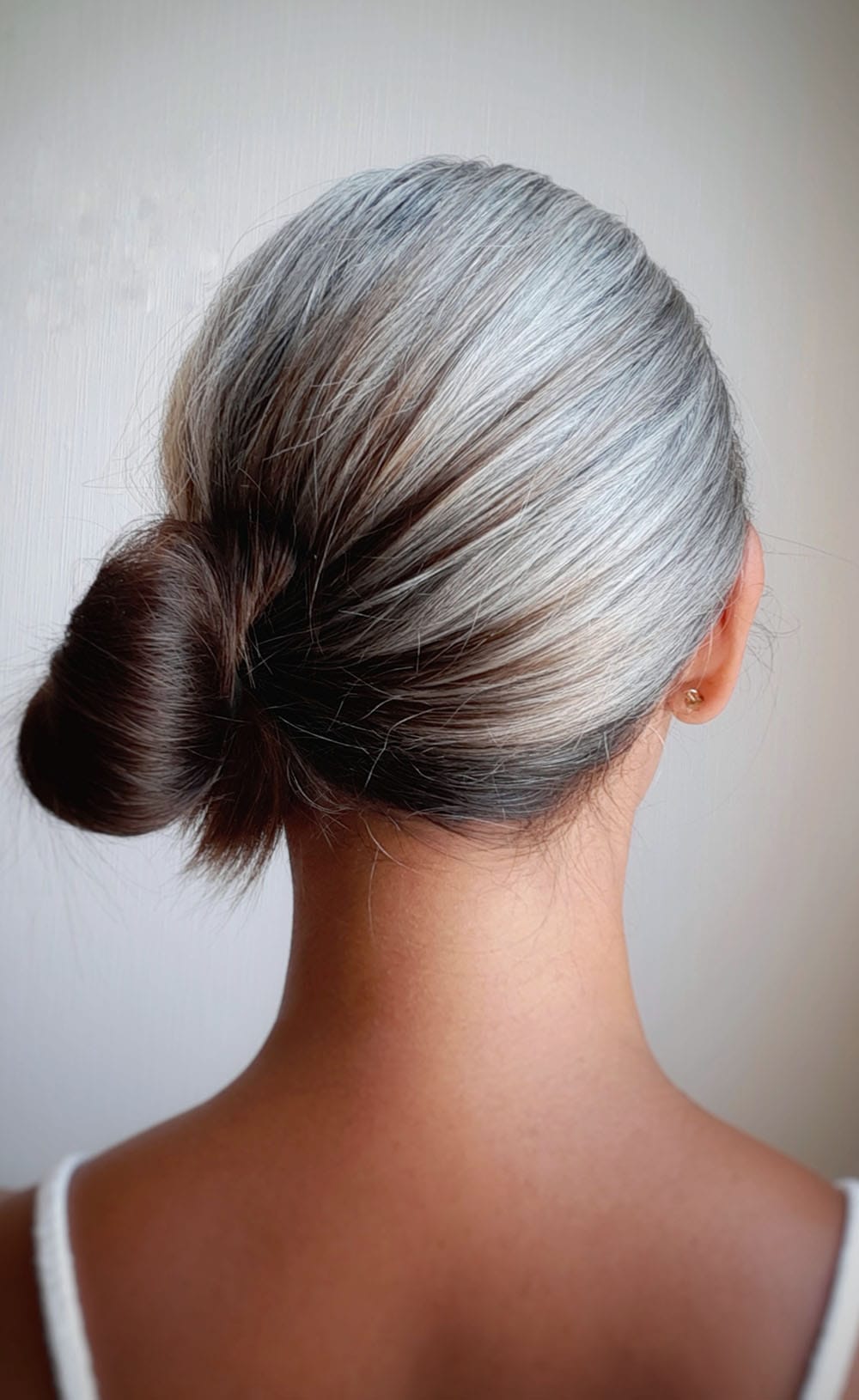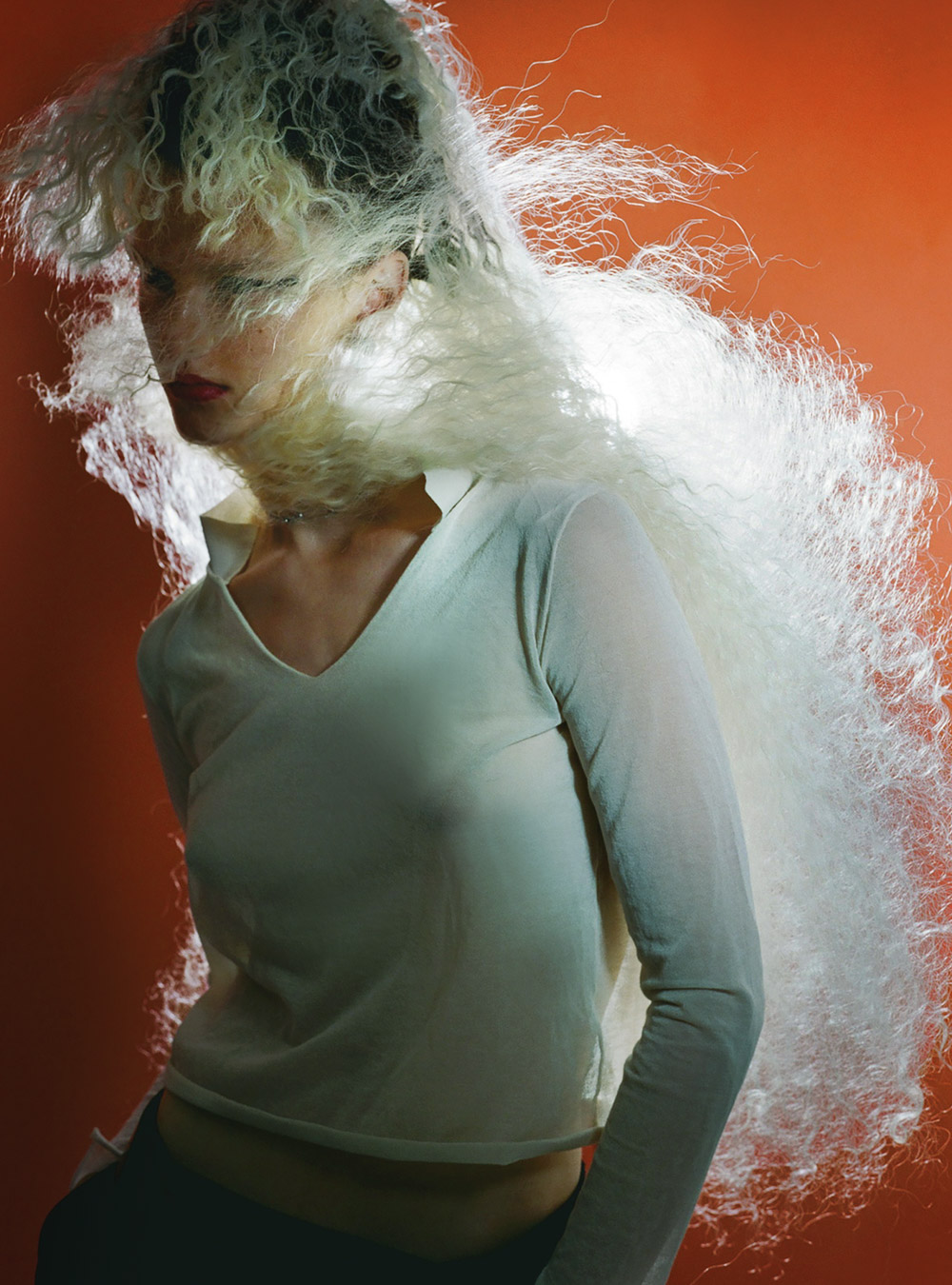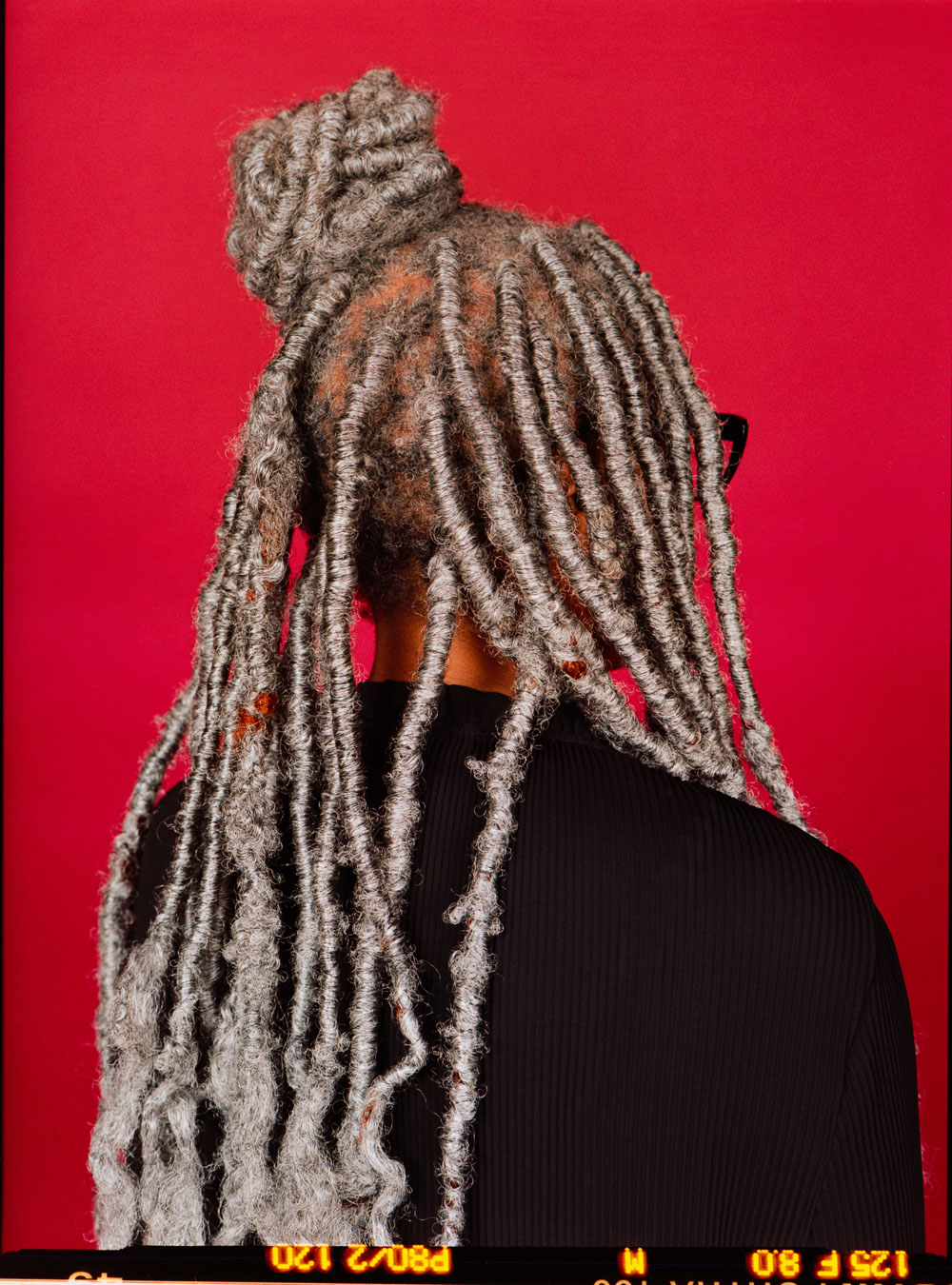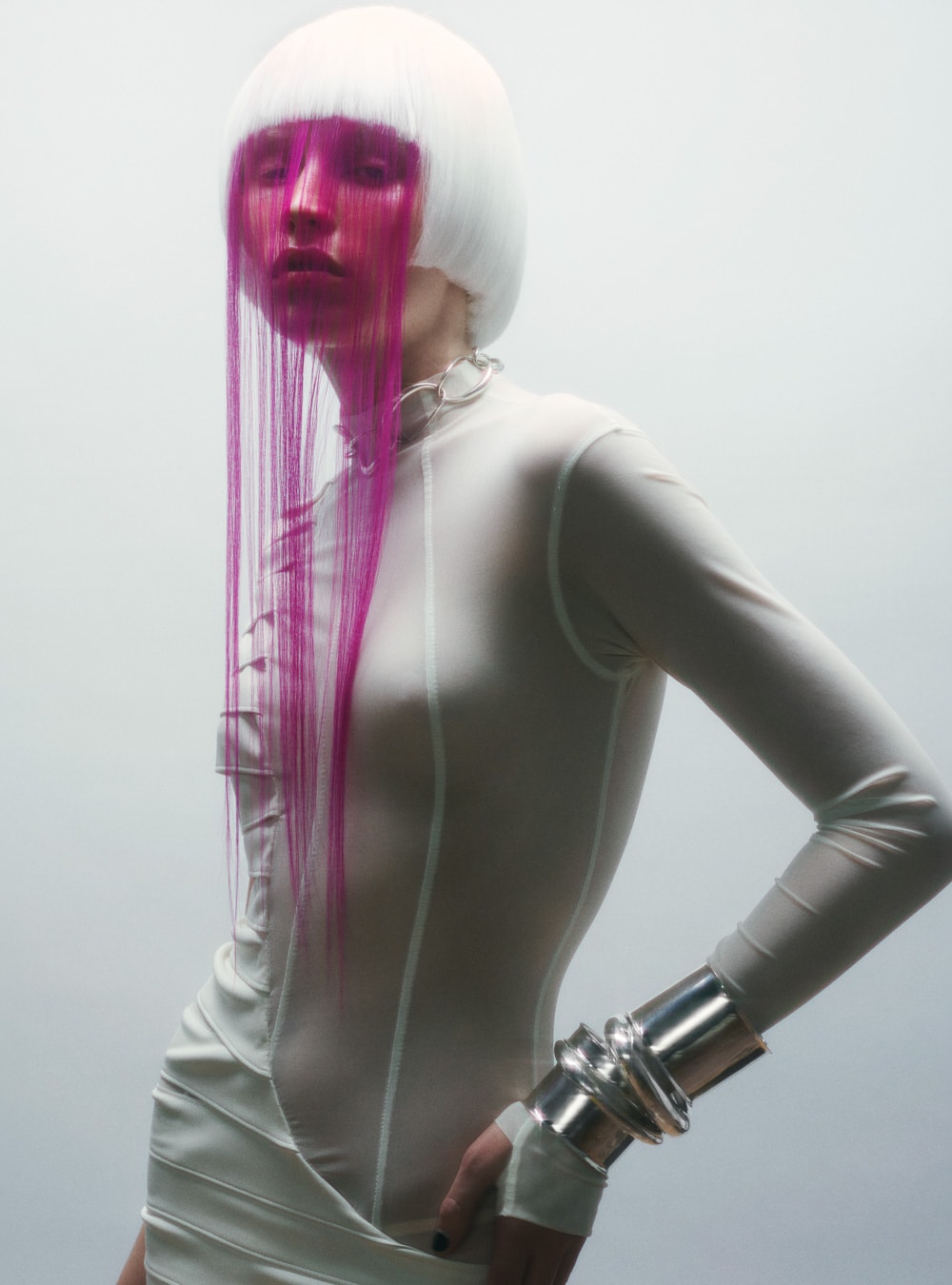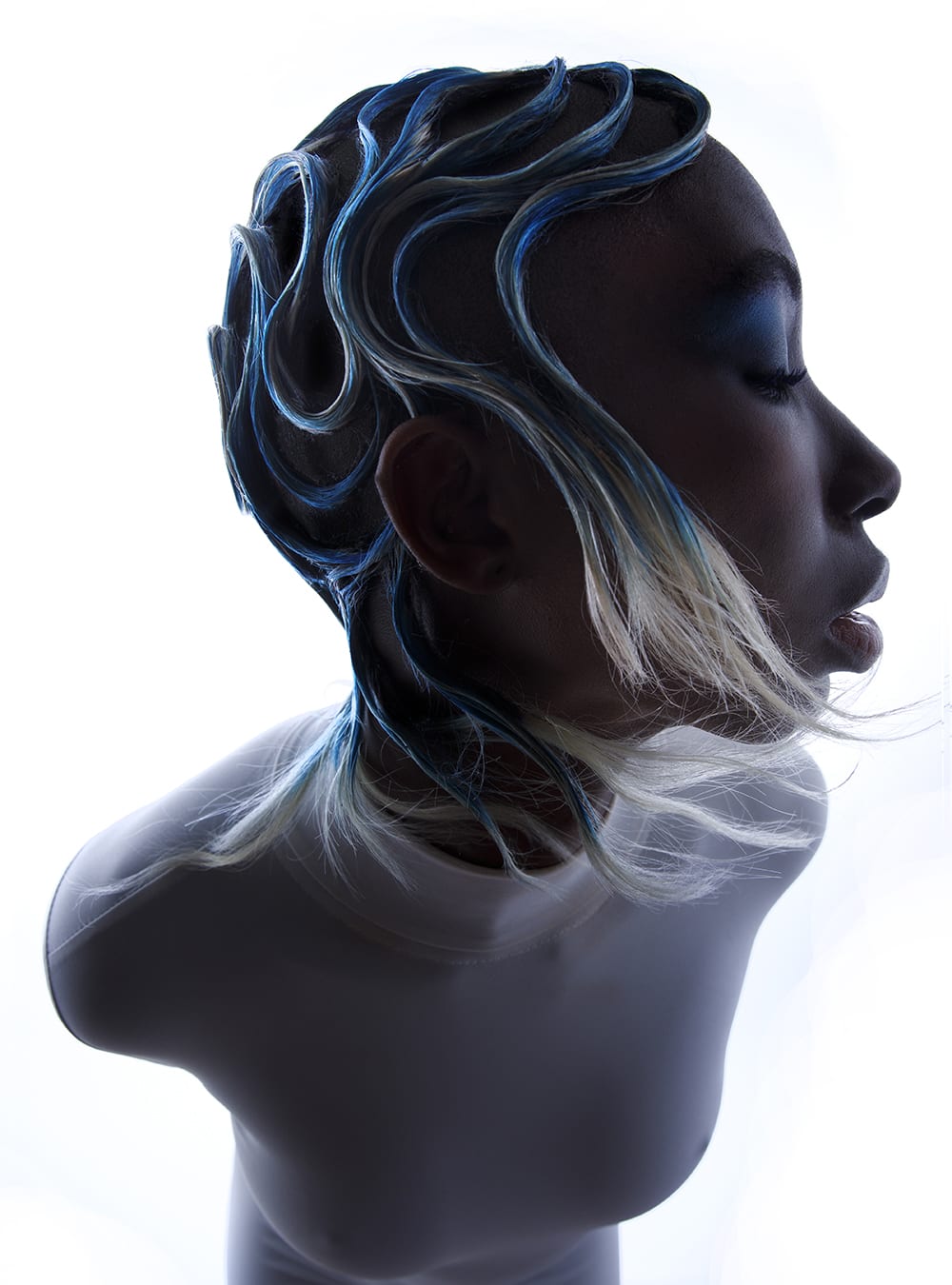- Silver Linings
- Silver Linings
- Silver Linings
PEOPLE: Considering ditching the dye post-lockdown? We meet the women documenting their grow-out online
Interviews: Emma de Clercq
When it comes to post-quarantine hair, months of lockdown have undoubtedly liberated lots of grey and white hair. While many will be rushing back to their newly reopened salons, others may be considering ditching the dye for good. In a society that fetishises youth it’s understandable why so many are motivated to dye their hair to distance themselves from the stigmas of growing older. Showing your roots is likewise plagued by negative associations such as ‘letting yourself go’, a message happily perpetuated by an industry whose existence depends on us being anything but natural. While beauty ideals are slowly edging towards more inclusivity, our default reaction is still to cover up the greys, and choosing not to is something that undoubtedly takes guts.
Some have found the support they needed via Instagram, sharing images of their growing demarcation lines with hashtags such as #greyhairdontcare and #silversisters. Many of the accounts are accompanied by bios proudly inscribed with a ‘last dye date’, proving that going dye-free is a hard habit to kick (feeling tempted to “hit the dye bottle” being a common phrase among the individuals we spoke to). Finding #Silversisters gave Julie (Day 1, 16 March 2019) the final push to go natural after years of dye frustration. “I stumbled across it and saw a few inspiring transitions, it was the final encouragement I needed”, she says. The same sentiment is echoed by Mia (Natural Silver Sister since 2016), who discovered “a whole community of supportive silver sisters on IG. You will be welcomed and understood there, and more importantly inspired and supported”.
Below, we share some of the different stories of those who are documenting their natural hair colour journeys online.
You mention that now your hair is its natural colour, people often ask you if you dye it, more than when you were actually dyeing it! Are there any other surprising things that you’ve noticed since transitioning to grey? Yup… I get a lot of love, kind words from strangers every day! All ages! When I used to dye my hair, young people would often say “You look good for your age Mia”, which I never really saw as a compliment… what does that even mean?! Now that has changed and something I hear from young people regularly is “I want to look like you when I’m your age”. Which is so much more of a compliment. My daughters’ friends even follow me on Instagram which is hugely flattering!
Has letting your hair go natural made you think differently about other expectations and beauty ideals in relation to hair and beauty? Oh 100%! I know that I clung onto my dye bottle for so long because I worried way too much about what others might make of me… I was working in digital and in the music industry, surrounded by young creatives. I’d seen the music industry shift from analogue to digital, and whilst I felt valued by my team I also felt a reluctance to be profiled. It was a constant battle with my roots – they would begin to appear 4 days after dyeing and it literally felt as if my sparkling silver roots were yelling “Hey everyone! Look at the old lady trying to be young!”
I would don a hat or scarf to cover up. I was also single then too, and that was tricky for exactly the same reasons. I worried I would be sidelined, deemed too old and over the hill to be dating. In fact, quite the opposite happened. With regards to the workplace, now my natural hair colour is a focus, but for the right reasons. People genuinely enjoy seeing a woman working her silvers! And as for the dating? I’ve found my hair colour has filtered out the men from the boys!
While calls for more inclusivity within the beauty industry are leading to positive changes, there’s clearly still a long way to go. Do you feel like attitudes to grey hair are shifting? It feels like something significant is happening, that’s for sure. Especially with the growing number of new silver sisters emerging after lockdown. One thing I do notice though is that most of the silver hair representation within the beauty industry currently focuses on those of us who are white and svelte. I think we may have to go through a process before we see diversity and inclusion in the representation of ‘mature models’ in the beauty industry. I really hope that it doesn’t take as long as it took for us to finally see more diverse body types and skin colour being included in ad campaigns and on catwalks. Wouldn’t it be wonderful if we could just skip that fight, and jump straight to a place where the beauty industry reflects all of us in our natural silver glory!
What would your advice be to someone thinking of ditching the dye? I would say that you are lucky! I’ve recently discovered there’s a whole community of supportive silver sisters on Instagram that wasn’t there in 2016. You’ll be welcomed and understood there, and more importantly inspired and supported.
You first started going grey in your teens, what was this experience like? Going grey at 16 was definitely not fun, especially when you’re already going through so many changes as it is. To add grey hairs on top of this was really cruel. Especially as the stigma around greys is being referred to as an old lady, and that’s the last thing you want to be associated with as a young girl.
It’s been 10 years since you found your first grey hair. Have your feelings towards it changed over time? My feelings towards image, beauty and my hair have changed drastically over the last 10 years. It was definitely a slow, painful process. I went through every emotion including denial, hate and embarrassment for many years up until my final years at university where I really started to figure out who I was and what I liked. Even some of my closest friends didn’t know that I had greys until I started growing them out. What really changed me was meeting strong, empowering confident women who didn’t care about makeup or shaving, and who embraced their natural beauty and owned it.
Your dad went grey very early too, have you and he had many conversations about it? My dad told me he found his first grey hair at the age of 11. I used to tell him it was his fault that I was going grey like it was a curse, but as I have grown I have also realised that they also represent his heritage. My father was adopted, so I feel like there is this element of mystery about where they originally came from, and this makes me love them even more. My younger brother and I both have what we like to call ‘salt and pepper’ hair and nowadays we can laugh about how grey we all are, and we still blame him in the most loving way. It’s something that bonds us.
While calls for more inclusivity within the beauty industry are leading to positive changes, there’s clearly still a long way to go. Do you feel like attitudes to grey hair are shifting? I think the beauty industry can be very damaging, although the inclusivity is getting better and more creative, the access that young people and children have via social media can warp their perceptions of gender roles, affect their mental health, much like my own growing up. This is amplified by social media giving false or impossible beauty standards with edited images and filters. I hope that with more women embracing all things natural, that this will in turn help define what women look like in the future and expand on uniqueness and creativity. I have experienced so much love from family, friends and even strangers about my greys, and I now love that they are what makes me uniquely me.
Why did you decide to stop dyeing your hair? A couple of years before ditching the dye I’d been feeling so annoyed by the need to cover my roots every 10-14 days and still be unsatisfied with the result. Two days after dyeing it I would already see the huge contrast between my growing white roots and the brunette colour on the length. Nonetheless I continued dyeing it, horrified by what the social reaction might be when people see me completely white at my age. Everything changed when my son was born. I simply didn’t have time to keep on dyeing my roots, nor did I want my baby to smell the toxic chemicals from the dye.
Have you ever received any judgment or negative comments? Oh, I sure have! But I must admit that throughout my journey positive comments dominated, although the negative ones were really painful. One of the most unpleasant experiences was when I had to listen to a 30 minute lecture from a cosmetologist about how a woman should not let herself go. I literally couldn’t open my mouth to reply because I was receiving a skincare treatment. Skincare and letting myself go – paradoxical, isn’t it?!
What was the response from your hairdresser when you decided to grow out your greys? It may surprise you to hear that my lovely hairdresser was actually the first to encourage me to go grey. I was complaining that I was tired of hiding my roots when he said that it’s a popular movement abroad, that my natural colour was very beautiful and suggested that I ditch the dye. And it was also him who refused to bleach my hair – for which I’m very grateful!
On your Instagram you create hairstyles which deliberately show off the contrast between your brown and grey hair – is this something you enjoy? Creating various hairstyles has turned into a new hobby since I started my Instagram account. I truly enjoy showing off the contrast in my hair as I’ve learnt to love my previously hated demarcation line. To tell you the truth, I’m going to miss it when I complete the grow-out!
Your last relaxer was in 2011, you had your locks installed in 2014 and stopped dyeing your hair in 2016. What was this gradual transition to natural hair like for you? In 2011, when I decided to no longer relax my hair was when I began to love and appreciate my hair. In the beginning it was a hard transition of having natural hair and relaxed ends, which is why I decided to do the big chop. Shortly after my tiny fro began to grow so much that I was doing twist outs and two strand twists. After a few years of being a loose natural and never wanting to do my hair I decided to get sisterlocks. Having natural loose hair is too much maintenance for me – having sisterlocks allows for so much freedom and is very low maintenance.
While calls for more inclusivity within the beauty industry are leading to positive changes, there’s clearly still a long way to go. Do you feel like attitudes to grey hair are shifting? This is my natural hair, why wouldn’t someone accept it? One would think it was that simple huh. There is this thing called hair discrimination, especially in the workplace. We should all have the same opportunities regardless of our hair. However, I do feel that attitudes about locked hair and grey hair is changing. It’s being seen more, so more people are beginning to understand that this is our natural hair process.
For you, does not covering your greys feel like an act of celebration or defiance? It’s an act of celebration for me. I celebrate myself and my hair, the freedom from perms, relaxers, no maintenance hair! Self-love first. You have to be happy within yourself.
Not covering your natural greys gives the impression of someone at ease with themselves when it comes to their physical self – is this something you agree with? To a certain extent. I agree that deciding to intentionally reveal your grey hair and then undergo the long and often emotional journey of growing it out does require a certain amount of self-acceptance and ease with who you are. Most days I’m fine with the transition, with the growing line on my head, the colour shift and the stares. But as with many things, insecurities can creep up and comments can leave you feeling self-conscious. In those moments, I remind myself why and for whom I am doing this. Exposing your natural greys is one of the quickest ways to find out how much of your own self-worth is tied to your appearance. It forces you to look beyond the superficial and start appreciating the many things you have to offer the world beyond what is visually apparent. Call it ease, call it comfort; either way, I have noticed a shift towards a greater self-love and acceptance.
Your IG bio requests for no unsolicited DM’s from men. I noticed many other IG profiles which document grey hair journeys show a similar message. Are you surprised by the amount of male interest levelled at your grey hair? Yes, it is a very surprising phenomenon and definitely one that I had not anticipated.
How do you think you’ll feel when the last of your non-grey hair grows out? My first month dye free I would have given anything to be done with the grow out. I was shocked when reading about women holding off on getting the last inch of their dyed hair cut for fear of being finished. Why would anyone want to postpone this process, was my initial thought? Fast forward 9 months and I have often revisited this notion and now have a better understanding of where they are coming from. Growing your grey hair out is about so much more than growing your grey hair out. It is both an external and internal transformation. For me it has been a positive journey thus far and I think I will sadly miss it when it comes to an end, but I imagine that I will look back with fondness on the process and growth.
What made you decide to stop dyeing your hair? I originally wanted to stop colouring my hair when I was in my early 30s. The hairdresser at the time stripped all the colour and I went home with orange hair. Needless to say I went back the following day and had it dyed brown again. Another twenty years passed and by this time I was dyeing my roots every 10-14 days. The box dye brand I used changed their formulation and my hair resisted – I was having to dye it twice to stop it being translucent. I’d had enough by this point. I stumbled across the #silversisters on IG and saw a few inspiring transitions and it was the final encouragement I needed.
Have you ever received any judgment or negative comments? I’ve had a few negative comments on social media, but they are in the minority. I hid my roots mostly for the first 18 weeks with hats and root spray, which I finally ditched at 18 weeks as I needed too much spray! I did get someone take a sneaky photo of me at an outdoor concert once whilst pretending to take a photo of herself, and send it to their friend with the caption “ignore the pic of me, look at this woman’s hair lol”. I confronted her stating how disappointing it was she felt the need to do that whilst sitting with her silver fox male partner! She apologised profusely!
What would your advice be to someone thinking of ditching the dye? I’d thoroughly recommend it. No more worrying about roots showing, scheduling dye days around going out, worrying about the wind blowing a parting in your hair, not worrying about sitting under lighting in restaurants that accentuate your roots or even travelling on an escalator where people can look down on your head!
Your dad’s a hairdresser – what’s his reaction been to you growing out your greys? Haha – he wants to do a separate interview to tell you how he got his grey hairs! Me, I presume. We did have a discussion recently about a buzz cut and bleaching to avoid the whole growing out phase and he is very supportive – although he claims I am very dramatic in conversations about my hair and it does annoy me that he is usually right.
As a professional skin coach, how does your attitude to skincare and haircare align? Skincare works best when you understand your skin’s needs, exactly the same as your hair and haircare. We spend too much money on products that gather dust on shelves because they have made our skin and hair react negatively – its important to speak to a professional who can explain ingredients and formulas to get the most out of your purchases for both.
Have you thought about whether you will continue to grow out your grey hair once hairdressers open again? Yep – I laughed the other day thinking about my big stance and shouting out about it then being the first in line when the salon opens… but I won’t be colouring my hair dark again. I’ve come to terms with my brown locks being in my past and it’s interesting to see that my skin tone looks better with my grey halo, so I’ll be happy to embrace some lighter pieces or consider a toner to keep the white bright.
Many IG bios of accounts documenting these hair journeys are inscribed with a ‘last dye’ date. The idea of marking the date in this way suggests that covering our greys could be considered a kind of vice, a habit to be kicked. What are your thoughts on this? Very interesting point – I suppose, like addiction, there is a freedom attached to giving up the “need” to colour our hair. It’s a habit that is hard to break and celebrating it allows others to consider grey/white hair on females as a positive step. It will also be a step forward when we don’t celebrate it and it simply happens, as it does with the majority of men.
For you, does not covering your greys feel like an act of celebration or defiance? A defiance to be celebrated I guess.
What made you decide to document your hair transition on Instagram, and have the reactions been as you expected? One day, once I had started growing out the grey, I took a mirror selfie and toyed with the idea of posting it… it felt terrifying like I was about to unleash my shame upon the world. It seems silly to think of now as I am so confident sharing my hair but back then it was terrifying. But I had this nagging thought that if I post this photo, someone else might gain a little courage to be truly themselves – whether that’s growing out their greys or going against the grain in some other way. I hope my confidence and openness makes others feel the same in a society that is constantly trying to shame us!
What has been the reaction from your hairdresser when you decided to grow out your greys? In South East Asia, where I live, the trend is definitely for women to look very young, so when I started teasing hairdressers saying I would grow it out they were horrified. That shook my confidence a little when I was considering it. I visited a salon to see if they would blend it out as I’d seen some incredible blend jobs on Instagram, but was ultimately told it would need an expert as the colour pattern is complicated, and my dyed hair so dark. Now I’m glad I am transitioning it this way, I love seeing the way it grows. In a couple of months I think I’ll cut it to a sharp bob, and I’m excited to experiment with pastel tones when the white is fully grown out!
What would you say to someone who is considering ditching the dye? It’s easy to say ‘just do it!’ but I understand everyone’s journey is different. When you’re ready, you’ll know. It is as much about self confidence and acceptance as it is the hair. I’ve had lots of women message me privately sharing their transitions who aren’t quite ready to share it with the world – little by little your confidence will grow, and the love you have for yourself will outweigh anything negative you perceive.
- ANTHROPOLOGY OF HAIR
- ANTHROPOLOGY OF HAIR
- ANTHROPOLOGY OF HAIR
- ANTHROPOLOGY OF HAIR
- ANTHROPOLOGY OF HAIR
